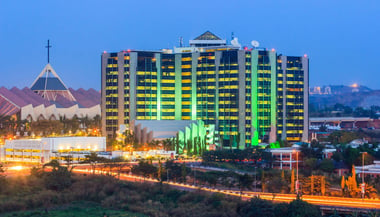How To Avoid Money Laundering In Dubai, And Why The Dubai Financial Services Authority Is Important (DFSA)
In its special economic zone, Dubai, one of the most significant financial centres in the United Arab Emirates and the Middle East, is home to a number of multinational commercial interests, including the Dubai International Financial Centre (DIFC). Since its establishment in 2004, the DIFC, home to hundreds of banks and financial institutions, has expanded to rank among the top ten financial centres in the world. Due to its characteristics, Dubai is also a desirable target for financial criminals looking to profit from the city-concentration state of wealth. This, regrettably, contributes to the prevalence of money laundering and terrorist financing in Dubai.
The DIFC operates its own regulatory framework and is essentially a separate jurisdiction from the larger UAE to address the financial challenges it faces. The Dubai Financial Services Authority (DFSA), the regulatory organisation in charge of combating money laundering and other financial crimes in the special economic zone, is in charge of monitoring that system. Financial institutions operating in Dubai must therefore be aware of the risks associated with anti-money laundering and counter-financing of terrorism, as well as how to adhere to the necessary DFSA rules.
What does the DFSA do?
The Dubai Financial Services Authority was established in 2004 under the authority granted by Article 121 of the UAE Constitution. By identifying and stopping financial crimes, as well as implementing laws against money laundering and countering the financing of terrorism, the DFSA has the responsibility of safeguarding the DIFC and, consequently, Dubai's economy. All financial services provided by the DIFC are covered under the DFSA's mandate, including banking and credit services, Islamic finance, insurance, asset management, securities, and investment funds.
Dubai's Money Laundering Regulations
The primary legal framework for preventing money laundering in Dubai is UAE federal law, which was created to adhere to the international AML/CFT standards outlined in the Financial Action Task Force's recommendations (FATF). The following significant federal laws affect AML in Dubai:
- Federal Law No. 1 of 2004, Decree on Combating Terrorism Offences
- Federal Law No. 20 of 2018, On Anti-Money Laundering and Combating the Financing of Terrorism and Financing of Illegal Organizations
- Federal Law No. 4 of 2002, Concerning Combating Money Laundering and Terrorism Financing Crimes
In addition to the federal rules that apply to the entire United Arab Emirates, the DFSA has the authority to impose specific AML/CFT requirements on the special economic zone under the DIFC Regulatory Law of 2004. Firms operating within the DIFC are required by Article 7(1) of the Regulatory Legislation 2004 to adhere to the obligations established by UAE federal law.
Banks, financial institutions, and other required businesses need to apply for a licence from the DFSA to operate in the DIFC.
Dubai's Money Laundering Compliance and the DIFC
The DFSA mandates that businesses in the DIFC take a risk-based approach to money laundering in Dubai in compliance with FATF principles. In actuality, this means that businesses must create an AML/CFT programme that incorporates the following controls and procedures and is commensurate to the risks of money laundering they face:
- Customer due diligence (CDD) is the process by which businesses verify the identity of their clients and make sure they are being honest about the nature of their operations. Customers with a higher risk of money laundering should be subject to stricter due diligence requirements (EDD).
- Transaction monitoring: Businesses should keep an eye out for activity in client accounts and transactions that might be a sign of money laundering, such as transactions that exceed a certain threshold, suspicious transaction patterns, or transactions involving high-risk nations.
- Screening: Companies should run their clients' information through appropriate international sanctions lists, adverse media screening, and political exposure screening.
- A compliance officer: also known as a money laundering reporting officer (MLRO), who has the authority and knowledge necessary to do their duties competently should be in charge of overseeing internal AML programmes.
Firms in the DIFC should use a Supervised Firm Contact Form to send a suspicious activity report (SAR) to the DFSA and the UAE Central Bank whenever they discover suspicious activity, such as money laundering in Dubai.
AML Rulebook: The DFSA provides businesses with an AML Rulebook that includes detailed modules about how AML/CFT laws are applied in the DIFC. The handbook provides instructions on how to apply the risk-based strategy and interpret AML/CFT regulations. The specifics of the DFSA AML rules should be understood by all banking and financial institutions located in the DIFC.
DFSA compliance
The DFSA has the authority to conduct investigations into violations of AML/CFT laws committed by businesses located in the DIFC. As part of that investigation, the DFSA may look for a range of evidence, including requesting accounts and documents and speaking with personnel under oath.
The DFSA has the authority to impose penalties on businesses that who fail to meet required compliance standards, such as fines, licence suspensions or revocations, or administrative restructuring. Offences involving money laundering in Dubai may be punished by penalties ranging from 10,000 to 1,000,000 dirhams or by imprisonment for prison terms of up to 10 years.
How Can Tookitaki Help?
Headquartered in Singapore, Tookitaki is a regulatory technology company offering financial crime detection and prevention to some of the world's leading banks and fintech companies to help them transform their anti-financial crime and compliance technology needs. Founded in November 2014, the Company employs over 100 people across Asia, Europe, and the US.
Fighting financial crime needs to be a collective effort through centralised intelligence-gathering. The Anti-Financial Crime (AFC) Ecosystem includes a network of experts and provides a platform for the experts to create a knowledge base to share financial crime scenarios.
This collective intelligence is the ability of a large group of AFC experts to pool their knowledge, data, and skills in order to tackle complex problems related to financial crime and pursue innovative ideas.
The AFC ecosystem is a game changer since it helps remove the information vacuum created by siloed operations. Our network of experts includes risk advisers, legal firms, AFC specialists, consultancies, and financial institutions from across the globe.
Tookitaki’s Anti-Money Laundering Suite (AMLS) covers the entire customer onboarding and ongoing processes through its Transaction Monitoring, Smart Screening, Customer Risk Scoring and Case Manager. Together they provide holistic risk coverage, sharper detection, and significant effort reduction in managing false alerts.
Tookitaki's solutions work in tandem and help our stakeholders widen their view of risk from an internal one to an industry-wide one across organizations and borders. Moreover, they can do so without compromising privacy and security.
To learn about our AML solutions that can help you to comply with AML/CFT regulations in Dubai speak to one of our experts today.
Anti-Financial Crime Compliance with Tookitaki?




